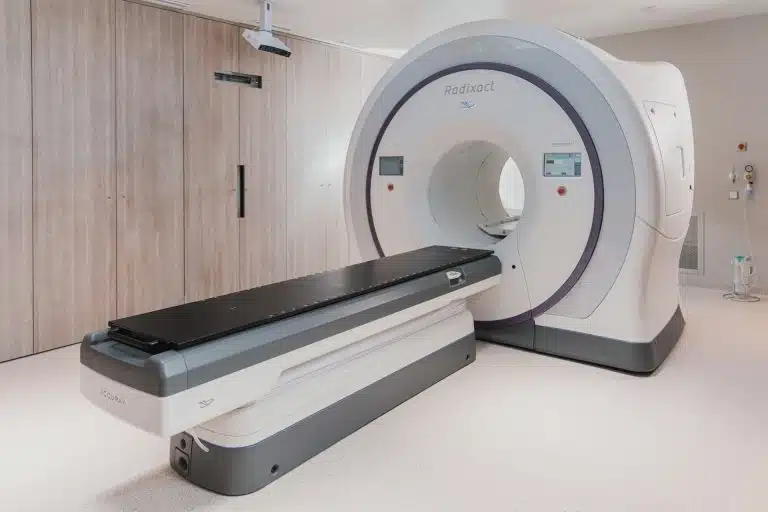
Lung cancer is the leading cause of cancer-related deaths worldwide. Early detection through lung cancer screening is a crucial step in reducing mortality rates and improving the prognosis for individuals at risk. Here you will read about lung cancer screening, the procedures involved, and why it is essential to consult a lung specialist offering this service. By understanding the importance of lung cancer screening, if you at high risk of lung cancer you can take control of your health.
The Importance Of Lung Cancer Screening
Lung cancer often presents without symptoms in its early stages, making it challenging to diagnose and treat promptly. When detected early, the chances of successful treatment are significantly higher, leading to better survival rates. Lung cancer screening can identify the disease at an early stage, allowing for quicker intervention and improved outcomes.
Who Should Consider Lung Cancer Screening?
Lung cancer screening is recommended for individuals at high risk of developing lung cancer. In the United Kingdom, the screening criteria focus on:
- Individuals aged 55 to 74 years who currently smoke or have a history of smoking.
- Those who have undergone an assessment to evaluate their lung cancer risk using the PLCOm2012 risk prediction model, with a 6-year risk score higher than 1.5%.
The PLCOm2012 risk model takes into account factors such as age, smoking history, race, body mass index (BMI), personal history of cancer, and family history of lung cancer.
If you fall into any of these categories, it is crucial to discuss your risk factors with a lung specialist and consider lung cancer screening as part of your healthcare plan.
Lung Cancer Screening procedure
Lung cancer screening typically involves a low-dose computed tomography (LDCT) scan. This non-invasive imaging test uses a low dose of radiation to capture detailed images of your lungs. These images can reveal small nodules or growths that may indicate early-stage lung cancer.
Before the Scan
Before your LDCT scan, you’ll meet with a lung specialist to discuss your risk factors, the benefits and potential risks of the screening, and any questions you may have. They will explain the procedure, address your concerns, and help you make an informed decision about whether lung cancer screening is right for you.
During the Scan
During the LDCT scan, you will lie on a narrow table that slides into the CT scanner. You may be asked to hold your breath briefly while the machine captures images of your lungs. The procedure usually takes only a few minutes and is painless.
After the Scan
Following the scan, a lung specialist will analyse the images to identify any abnormalities. If nodules or growths are detected, further tests may be necessary to determine whether they are cancerous. Depending on the size and characteristics of the nodules, your lung specialist may recommend additional imaging, a biopsy, or regular follow-up scans to monitor their growth
Benefits of Lung Screening
The primary benefit of lung cancer screening is the potential for early detection, which can improve treatment outcomes and survival rates. Additional benefits include:
- Peace of mind: Knowing the status of your lung health can alleviate anxiety and empower you to make informed decisions about your healthcare.
- Personalised care: By identifying your risk factors, your lung specialist can tailor a screening and treatment plan that meets your specific needs.
- Early intervention: Early detection enables your lung specialist to provide timely care, potentially preventing the cancer from spreading to other parts of the body.
Getting your Lung Screening Health Check
Finding a lung specialist is essential when considering lung cancer screening. Here are some factors to consider:
- Look for a lung specialist with experience in diagnosing lung cancer, as well as managing smoking-related lung diseases. The specialist should have access to a wider multi-disciplinary team including specialist radiologists, interventional bronchoscopists and oncologists.
- Choose a lung specialist who can evaluate and manage your overall health, taking into consideration the impact of smoking-related lung diseases and other risk factors.
- A good lung specialist should listen to your concerns, answer your questions, and communicate clearly about the screening process and any follow-up care.
- Choose a lung specialist who works in a facility equipped with the latest technology and resources for lung cancer screening and treatment.
- Read reviews from other patients to gain insights into their experiences with the lung specialist and their satisfaction with the care they received.
Conclusion
Lung cancer screening is a critical tool in the early detection and treatment of lung cancer. By identifying lung cancer at an early stage, individuals at high risk can receive the care they need, increasing their chances of successful treatment and survival. Consult with a lung specialist who can not only evaluate your risk factors for lung cancer but also manage any smoking-related lung diseases. This comprehensive approach to your lung health will enable you to take control of your overall well-being.
Disclaimer: The information provided in this article is for informational purposes only and is not a substitute for professional medical advice, diagnosis, or treatment. Always seek the advice of your healthcare provider with any questions you may have regarding a medical condition or treatment.

